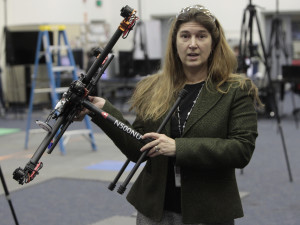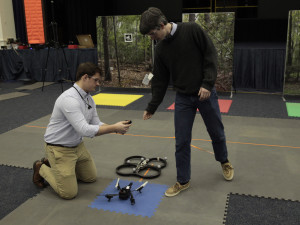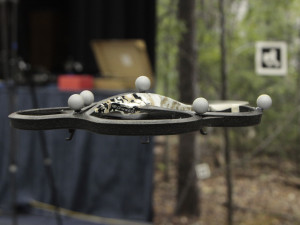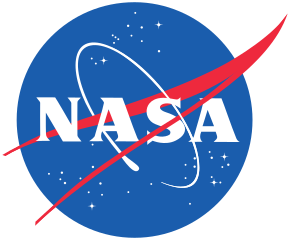The NASA LaRC Autonomy Lab for Intelligent Flight Systems is preparing the center workforce to meet the autonomy and robotics challenges that are anticipated in science, space exploration, and aeronautics as the NASA mission directorates looked to enable new missions such as asteroid retrieval, planetary exploration, pollution measurements in historically inaccessible areas, and the integration of UAS into our everyday lives – all missions of increasing complexity, distance, proximity, pace, and/or accessibility. Building on decades of NASA experience and success in the design, fabrication, and integration of safe and reliable automated systems for space and aeronautics, the LaRC Autonomy Lab for Intelligent Flight Systems seeks to bridge the gap between automation and autonomy.
The mission of NASA LaRC’s Autonomy Lab for Intelligent Flight Systems is to rise to the challenge of data-degraded/deprived navigation in dynamic and unstructured environments. We are primarily focused on aerial navigation but our R&D portfolio includes multimodal navigation and payload delivery solutions. Further, we are exploring the efficacy of machine learning solutions in some aspects of this autonomous navigation problem space.
The Autonomy Lab for Intelligent Flight Systems is a co-located team composed of researchers from multiple areas of expertise including but not limited to computer science, robotics, electrical engineering, mechanical engineering, aerospace engineering, psychology, machine vision, and machine learning. These Principle Investigators are supported by qualified UAS pilots, flight safety personnel, range safety officers, and technicians. The team works together in an Agile work environment towards a common technical challenge around autonomous operations across NASA missions.
- Danette Allen is leading NASA Langley’s Autonomy Lab for Intelligent Flight Systems.
- Autonomy Lab for Intelligent Flight Systems teammates Gilbert Montague, left ,and Charles Cross prepare a quadcopter UAV for a demonstration.
- This small quadcopter follows voice commands and can navigate barriers autonomously.




